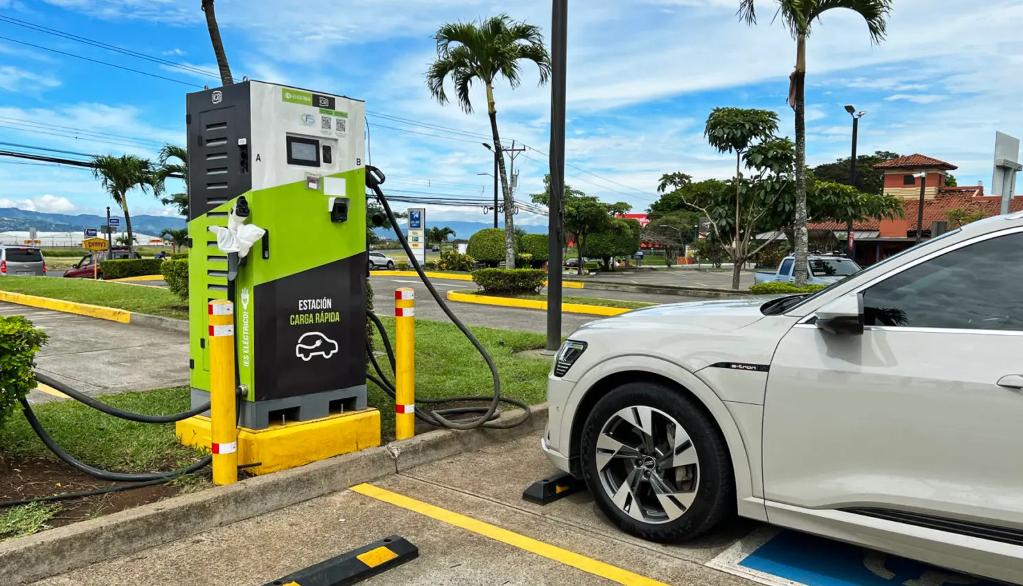QCOSTARICA — At two years to the 2026 presidential elections, electoral political activity is evident.
This is a somewhat risky move, not only because there is a risk of being the target of “snipers”, but also because in politics one week is thinking “long term”, which means that in two years it can go from everything, according to political strategist Iván Barrantes.
Barrantes added that the potential referendum expected to be announced this week by President Rodrigo Chaves would be a kind of political campaign before the 2026 presidential campaigns, adds the expert.
– Advertisement –
In this process, those who today have no logic a candidates can take advantage of the opportunity and position themselves on the starting line and potentially emerge as frontrunners.
There are already a handful of names being floated as strong candidates for 2026, however, the vast majority prefer to be cautious when confirming their aspiration officially, but they are also not completely ruling out the possibility that their name will not be included on the next ballot.
Claudio Alpízar (Esperanza Nacional), Eli Feinzaig (Liberal Progresista) are some of the interested.
Meanwhile, Álvaro Ramos, former president of the CCSS; Gerardo Corrales, independent economist; and Fernando Zamora, constitutional lawyer for the Partido Nueva Generación, are names also considering the possibility.
Natalia Díaz, the current Minister of the Presidency and 2022 presidential candidate, and Laura Fernández, Minister of Planning, are names that keep coming up, though not yet clear what party name they would be affiliated to.
People in high public positions, such as Díaz and Fernández, will have to resign their current post no later than February 2025.
– Advertisement –
Of all the potential candidates, perhaps the most open with his political aspirations has been Luis Amador, former minister of the MOPT, who last week announced that he wants to join the PUSC to run a high-profile campaign.
Amador, who is currently in self-exile in Canada following a series of alleged improprieties in his role as minister, said publicly “I hope to have the opportunity to serve Costa Rica again” while indicating that the PUSC is the historic party of his family.
At the PUSC, its president Juan Carlos Hidalgo is also mentioned as a possible candidate, who assured “that he is 100% focused on his work as the party leader”. In addition, the name of Leslye Bojorges, current legislator for Alajuela, is being bounced around.
At the Progressive Liberal Party, Eli Feinzaig indicated that he is focused on his work as a legislator, but asserted that his decision to participate in the next elections as a candidate will depend on several factors. Feinzaig lost the 2022 election to Rodrigo Chaves.
– Advertisement –
“Right now I am not focusing on the presidential campaign, but on my work as a legislator. My decision will depend on personal and family factors and the political landscape. However, it is not something I am dealing with at this moment,” said the legislator.
In the case of the Frente Amplio, legislators Ariel Robles and Sofía Guillén have stood out in Congress and, therefore, it would not be strange if one of them is eventually announced as a candidate. The historical leader of the Frente Ampio, José María Villalta, cannot be ruled out as a possible contender.
For his part, the president of the PLN, Ricardo Sancho, is promoting the idea of naming a consensus candidate.
“There is an awareness, a majority position of the PLN board, that we should not go to a convention, and that a consensus candidate should be elected, based on consultations, surveys, conversations and other analyses. We don’t want to go through a draining process,” said Sancho.
Rodrigo Arias, current president of the Legislative Assembly, and brother of two-time president Oscar, is a possible name to lead the PLN in 2026.
President Rodrigo Chaves has repeatedly pointed out that Arias, who has held the legislative presidency for three consecutive years*, behaves like a national presidential candidate.
Another name floating in political circles is Fabricio Alvarado, of the Neuva Republica, who has made two failed attempts at the presidential chair.
Many of the politicians above are recognized by a large part of the voters. However, this does not necessarily mean that people have a good opinion of them. For example, according to a February 2024 survey by the Indice company, Alvarado has a 82.1% known to the public score, but only 48.9% approval; Rodrigo Arias with 74.7% and 52.7%, respectively, Meanwhile, Amador has a 53.6% known score of but a 76.2% approval
The president of the Legislative Assembly is elected among the 57 legislators for a one-year term during the 4 years of the legislative session.
– Advertisement –
Source link
Rico



